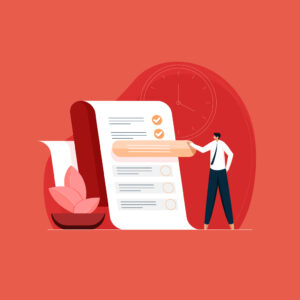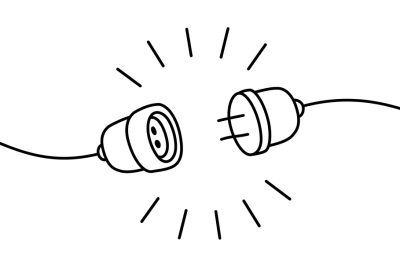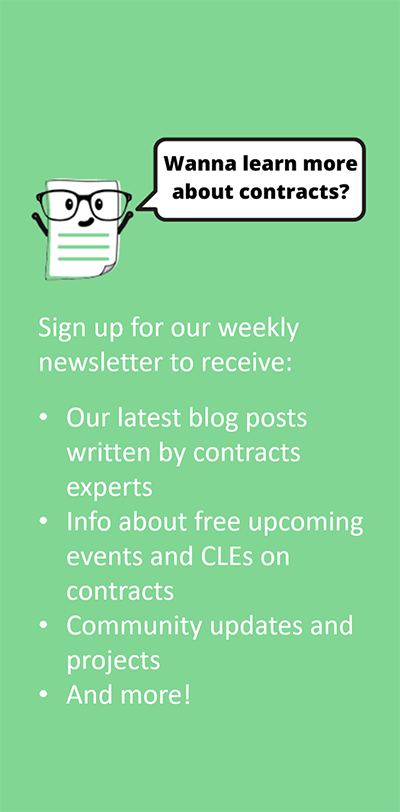 The more successful a software-as-a-service (SaaS) company is, the more SaaS agreements it will need to enter into with its customers. That means a higher volume of contracts with increasing complexity for your Legal team to manage.
The more successful a software-as-a-service (SaaS) company is, the more SaaS agreements it will need to enter into with its customers. That means a higher volume of contracts with increasing complexity for your Legal team to manage.
Contract experts working for SaaS providers face unique challenges when it comes to supporting their Sales (and Business Development) teams. While there are numerous resources available to SaaS contract experts who want to educate themselves on the intricacies of SaaS agreements, the best and most useful resource is actually much closer than you’d expect – your own company.
At a SaaS company, we are expected to be more than just attorneys or contract experts with subject matter expertise in the law. One of our most important responsibilities is to adequately support the sales cycle. The last thing you want is to be blamed for jeopardizing a deal due to a misunderstanding of the product, slow contract turnaround times, or unwavering legal terms.
That’s why you have to make sure to Cover Your SaaS! In order to be more, we have to integrate with the other departments and become more well-rounded experts on our company and our products. This article offers practical tips to create a more efficient and successful SaaS negotiation before you even get to the contract.
1. What are your product offerings?
The best way to start a SaaS contract negotiation is to boil your company’s SaaS offering down to an elevator pitch. For example, “XYZ is a cloud-based SaaS multi-tenant data warehouse solution and platform for ABC reason.”
You should know and understand your company’s SaaS product offerings like the back of your hand, so that you can speak intelligently regarding any perceptions of risks or concerns brought up by a potential customer’s legal, privacy or compliance departments. Even though SaaS is ubiquitous, folks in different departments have differing levels of comprehension regarding SaaS products. The customer’s lawyer or procurement representatives may have questions during the contract negotiation that require you to explain the technology to them.
In addition, SaaS contract experts should be able to address basic questions such as why your SaaS is different than buying a software upfront or an out-of-the-box installable software, and whether your SaaS is cloud-based or on-premise. You should also be aware of common data migration or privacy issues that can arise. What type of personal data does your SaaS product require to perform basic functionality? Knowing your product offerings will expedite your Sales team in closing the deal, which is invaluable and integral to the success of the company. Don’t get caught with your pants down, so to speak. Make sure you know what your company is selling and the risks involved. After all, confidence goes a long way in the negotiation process.
2. Do you understand your company’s sales strategy?
Consider the sales strategy (or customer onboarding process) as preparation for the contract negotiation. This is your first opportunity to communication information to your potential customers and counterparties, even before the contract negotiation begins. The importance of the SaaS lawyer’s involvement in the nuances of sales strategy cannot be overstated.
To better understand your company’s sales strategy, ask to sit through a few product presentations or customer pitches as a silent observer. This will tell you what Sales is promising to potential customers so that you make sure the messaging is consistent and compliant. You can also review RFP templates and customer responses to understand what types of information Sales is requesting from potential customers that might be useful to your contract negotiation.
In fact, you should conduct a systemic review of all Sales documents and scripts that are circulating among the team. Create or advise on a plan of communication with the head of Sales and suggest a regular cadence of communication. Ensure the Sales team and leadership knows you are available for questions, strategy consultations, or education, as they may need it.
One technique I use is to send periodic “legal update” messages to Sales about the industry that I consider useful. For example, if there is a regulatory update or case law that impacts our business, I will send a link to a well-written blog along with a couple sentence rundown of why that development is important. Regular education and meetings with the Sales team is also a fantastic way to maintain a strong relationship.
3. What are your legal and compliance non-negotiables?
There are certain sensitive issues that should be resolved before formal contract negotiations begin. These are issues you should have your Sales team bring to the forefront of commercial discussions before the contract negotiation begins to ensure there are no surprises during the contract negotiation. Introducing important concepts early on helps speed up the contract negotiation process, filter out bad customers, and build trust with potential customers.
For example, could the security review be completed before you are brought into the negotiation? This way, while you are aware that a deal is coming across your desk, the security teams are working together to conclude this portion before or in parallel with your review.
Another example is if you are sharing liability with your customer for compliance with certain laws. You could include a slide on legal compliance in your presentation to the client so that they are aware of their responsibilities and obligations as it relates to compliance. This clarity can also serve as a primer for difficult negotiations regarding indemnification and liability that often arise in SaaS agreements.
4. How can you leverage the customer onboarding process to help streamline the contract negotiation process?
While there are many ways to streamline your contract negotiation process (e.g., quality templates and processes, using a contract lifecycle management tool), streamlining the negotiation of SaaS agreements takes a little bit of extra effort on the part of both Legal and Sales.
The important thing to note in this type of preparation is that you will have to be involved with your team in the training and preparation of materials behind the scenes. The more work you put in up-front, the easier and smoother this process becomes.
Imagine yourself on the other side of this negotiation, representing a SaaS customer. What type of information would be helpful to you prior to entering a contract negotiation? For example, a FAQ regarding data privacy issues that is handed out to the customer with the initial package may preclude future questions regarding data-handling. Or, a data flow chart to better understand where the data is housed, and how it is stored or transmitted. If the geographic location of the data is an important issue, you can provide this information prior to official negotiations to help eliminate some questions down the line.
* * *
As you become more seasoned and familiar with your product offering, you can anticipate some of these questions and save time for you (and your elated Sales team) by working behind the scenes to help them prepare for negotiations before, during, and after a sale. Adopting these practical tips will enable you, as a SaaS contracts expert, to add genuine value to your company and streamline the contract negotiation process.

























